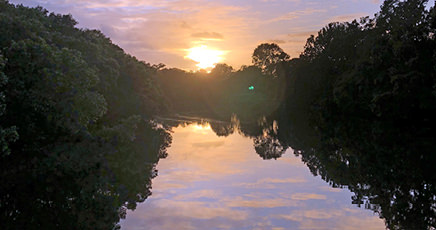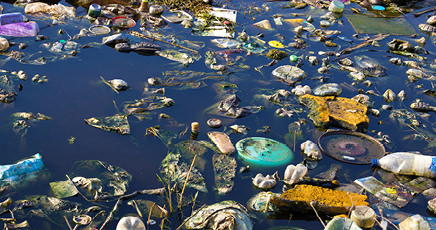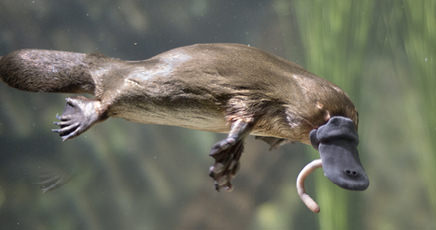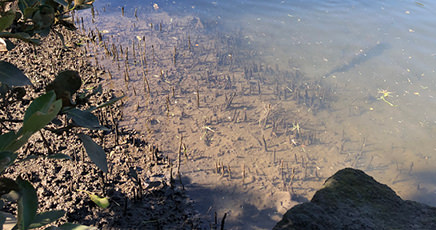STORY
Once again, Amir and his friends were feeling inspired after taking part in a student Climate Change Action forum. They decided to collect rubbish from the beach following their weekly surf. They could not believe the large amounts of rubbish they were collecting on their beach, particularly the amount of single-use plastic water bottles. Amir thought this was ridiculous, their drinking water was known to be really good quality. When Amir’s dad joined them one weekend, he said that the beach was looking great, that they were creating a big impact with a small effort. Amir’s mate Noah suggested they write to their local council and organise to get some water fountains installed so that people would stop bringing their single-use plastic water bottles to the beach. With the water fountains, people can drink from clean, rubbish-free drinking water.

We have the power to help keep our coastlines, rivers, lakes, swamps, creeks, floodplains, billabongs and estuaries clean by diverting rubbish from our waterways.
We can all be change makers. By altering our everyday habits such as limiting our use of single-use plastic items, we can also inspire others to do the same.
This learning activity is part of a sequence of 2 individual learning activities focused on cleaning up our waterways. The order of these learning activities are: clean-up and behaviour change.
For children to:
- understand our role as custodians of the land and waterways
- look at our behaviours and how they impact our waterways positively or negatively
- appreciate that our actions can make a visible difference to the health of our waterways
- value water as a precious asset that sustains us and other living things who share the earth with us
- influence others to change their behaviour to positively impact our waterways.
Changing our behaviour and inspiring others to do the same in caring for our waterways can be undertaken at any time of the year.
Introduction
Water quality is important to the liveability of places for people, animals and vegetation. If everyone makes small changes, we can make a big difference to the health of our waterways. Junior Landcarers will be able to draw on their experiences from their waterways clean-up activity, field data collection and analysis, to identify ways they can personally adjust their habits to reduce their waste and influence others to do the same.
Checklist
Instructions
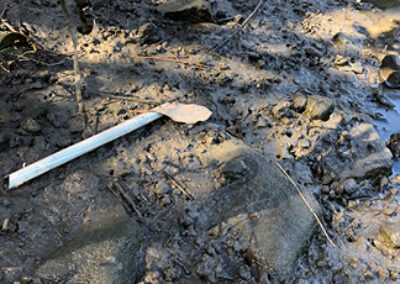
STEP 1
As a result of your Junior Landcare waterways clean-up activity, you have made a visible difference to cleaning your selected site. You have also gathered data which will inform future actions or behaviour change.
Provocations for behaviour change discussions and future action:
How do think the rubbish collected came to be at this site?
Were you surprised by any of the rubbish collected?
Was the volume of rubbish collection more or less than you expected?
If this rubbish had not been collected, how might this rubbish have caused harm to wildlife and the environment?
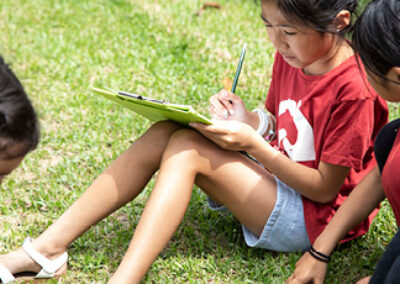
Step 2
While the efforts of the Junior Landcarers are to be commended, and frequent clean-ups will serve to protect the environment, what preventative measures can be undertaken if people were to change their behaviour?
Discuss how items found during the waterways clean-up could be reduced.
Explore items which we can reuse, refuse, reduce, recycle or swap out for eco-friendly options.
Use the suggested links in the Reference list to help build your discussions.
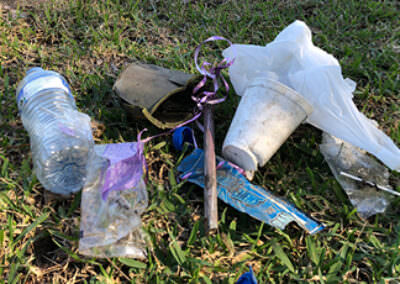
Step 3
Choose one type of rubbish collected during your clean-up. Seek solutions to this rubbish being reduced at home, school or at your youth group or Landcare group.
Example: single-use plastic straw solutions:
- Use reusable metal or bamboo straws
- Use paper straws
- Ditch straws altogether!
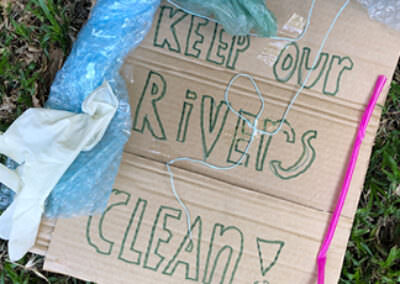
Step 4
If we want to motivate people to adopt new behaviour similar to yours, we need to show them that it’s worthwhile and easy.
Use the activity sheet to collect your ideas. Discussions could be:
- Creating your positive message
- How you can motivate others to change
- Who do you want to influence?
- How can you use the data collected from your clean-up activity?
- Impact of this rubbish type on wildlife and their habitat.
How might we communicate these important messages? Here are some examples:
- Create a poster
- Write social media posts
- Art display made from collected rubbish
- Student performance
How will you organise and spread your message?
Extension Activity
Adopt a spot. The collective effort of being active and involved in your local area through Landcare, Coastcare and other environmental community groups helps to make a real difference. Head to the National Landcare Directory to find contact details for groups, networks or community support officers in your local area. There may also be local council committees or trusts looking after your local parks and reserves.
Investigate how local Indigenous people are spiritually connected to waterways.
Curriculum and Framework Links
SCIENCE
Year 2: ACSHE035,
Year 3: ACSHE051, ACSIS060, ACSIS057
Year 4: ACSHE062, ACSIS068
Year 5: ACSHE081
Year 6: ACSHE100
Year 7: ACSIS125, ACSIS129
Year 8: ACSIS140, ACSIS144
Year 9: ACSIS165
GEOGRAPHY
Year 7: ACHGK045
ENGLISH
Year 2: ACELA1470
Year 3: ACELA1484
Year 4: ACELA1498
Year 5: ACELA1512
Year 6: ACELA1524
Year 7: ACELA1537
Year 8: ACELA1546
Year 9: ACELA1561
ETHICAL UNDERSTANDING
Exploring values, rights and responsibilities
PERSONAL AND SOCIAL CAPABILITY
Social awareness
CROSS CURRICULUM PRIORITY
Aboriginal and Torres Straight Islanders Histories and Cultures:
Sustainability
MY TIME,OUR PLACE: FRAMEWORK FOR SCHOOL AGE CARE
Outcome 2 and 4
Reference List
Be inspired by this Junior Landcare school who are taking initiatives to help the dunes near their school.
Interesting plastic facts from the Australian Museum will help to start conversations to rethink plastic use.
A range of fact sheets on marine debris from Tangaroa Blue.
Understanding marine pollution and actions you can take in your local environment from the WWF.
WATCH The Caring For Our Bays behaviour change program from the Bellarine Catchment Network is a great case study for working with schools community and businesses. ( 5:47)
This ABC BTN War on Waste school story looks at how students are working both with the school and broader community to reduce plastic use. (3:24)
Take 3 is a simple clean waterways initiative that asks everyone to simply take 3 pieces of rubbish with them when they visit the beach, waterway or anywhere – watch and learn how. (1:21)
Be proactive and choose 9 Eco-friendly swaps for single-use plastic items from the WWF. (1:09)
We value your feedback
When you have finished this learning activity, please tell us what you think with our survey.
Your feedback will help Landcare Australia improve the activities in the Junior Landcare Learning Centre.
Why not try one of our other Junior Landcare learning activities?
Love Letters to the Land
Biodiversity|First Nations Perspectives|Food Production|Waste Management
Creating a worm farm
Waste Management
Caring for our coasts: beach clean-up
Waste Management
Waterways: clean-up
Waste Management
